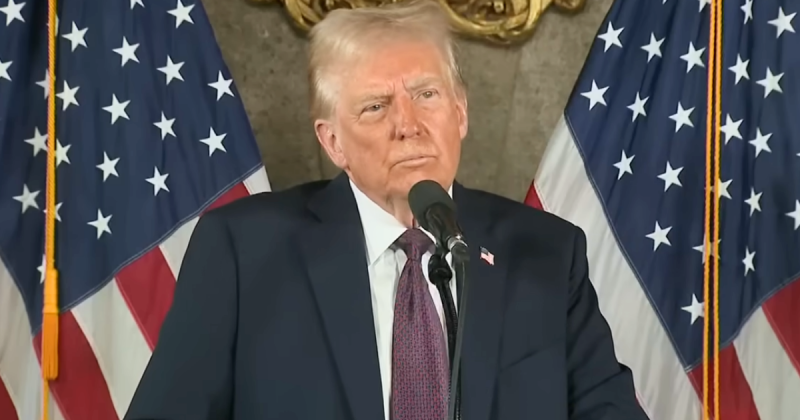President Donald Trump granted full pardons Thursday to former Tennessee House Speaker Glen Casada and his former chief of staff, Cade Cothren, both previously convicted on federal corruption charges.
The White House framed the decision as correcting what it described as “significant over-prosecution” by the Biden Justice Department (DOJ) for a relatively minor issue.
Casada, a Republican, had been sentenced in September to 36 months in prison following convictions on 17 counts, including wire fraud and conspiracy to commit money laundering.
Cothren received a 2½-year prison term, according to Newsmax.
The convictions stemmed from a scheme involving Phoenix Solutions, a consulting firm the men established with another lawmaker.
Prosecutors alleged the company was used to divert taxpayer funds for personal gain, including a $52,000 mailer program for state legislators.
To conceal their involvement, the men used a fictitious identity, “Matthew Phoenix,” on official documents, with Casada’s then-girlfriend listed as an associate.
Investigators viewed this as an effort to disguise who was actually benefiting from the contracts.
A White House official criticized the DOJ’s handling of the case.
“The Biden Department of Justice significantly over-prosecuted these individuals for a minor issue involving constituent mailers—which were billed at competitive prices, never received a complaint from legislators, and resulted in a net profit loss of less than $5,000,” the official said in a statement to NBC News.
“The Biden DOJ responded with an armed raid, perp walk, and suggested sentences exceeding 10 years—penalties normally reserved for multimillion-dollar fraudsters
Casada confirmed the pardon in a statement to WSMV in Nashville.
“Yes, the president called me today and granted me a full pardon,” he said. “I am grateful for his trust and his full confidence in my innocence through this whole ordeal.”
The case first drew attention after Casada resigned as House speaker in 2019 following a no-confidence vote from Republican colleagues.
The resignation followed revelations that Casada and Cothren had exchanged sexually explicit and racially insensitive texts about female lawmakers.
Cothren also admitted to cocaine use while working in the legislative office, further fueling public scrutiny.
Trump’s pardons of Casada and Cothren are part of a broader pattern of clemency for political allies and high-profile figures, including former Illinois Democratic Gov. Rod Blagojevich, former Connecticut Republican Gov. John Rowland, former Rep. Michael Grimm and reality TV stars Todd and Julie Chrisley.
Each case involved claims that previous administrations imposed penalties disproportionate to the offenses.
Supporters of the pardons argue that the Biden-era prosecutions demonstrate politically motivated overreach, while critics warn that such actions could undermine public confidence in accountability for elected officials.
The debate highlights ongoing tension over how federal prosecutors handle alleged corruption cases involving public servants.
Trump’s clemency record continues to spark discussion about the balance between justice, political influence, and fairness in federal prosecutions.
Advocates say the pardons correct disproportionate punishments, while detractors see them as part of a wider trend of leniency toward allies in government positions.
WATCH:

